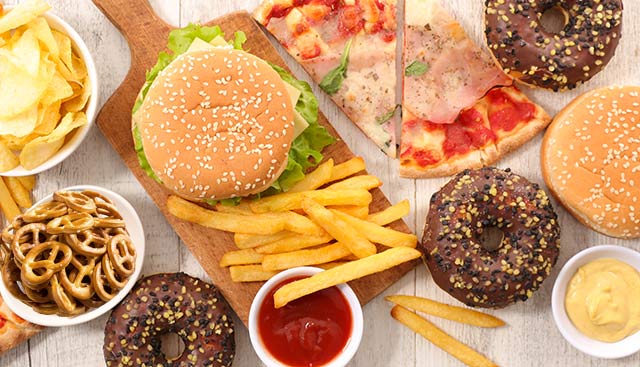Homemade DIY (Do It Yourself) foods are made at home by oneself rather than in a shop or factory. They are simply foods you can make from the comfort of your home and freshly prepared without the use of artificial preservatives, says parenting enthusiast and founder MomsAreCaring Foundation, Mercy Christian.
Homemade food is more nutritious and by far healthier than store-bought foods. They come in cereals, legumes, vegetables, dried fruits, drinks, snacks and can be prepared by parents to substitute them for the ones produced by the manufacturers.
The mum of two stressed that homemade foods may not taste the same as those produced at the factory because the major nutrients essential for optimal growth are removed at the very initial stage of food processing.
“But then homemade food has its natural nutrients intact without being stripped off. The only difference you get at the end of making your homemade food is that they taste better and different from those from the factory as their shelf-life is short because there are no artificial preservatives added to them.”
Christian noted that there are numerous health benefits of DIY foods. Their quality cannot be underestimated as they are referred to as wholesome foods – that is, food that has not been altered of its essential nutrients. Preparing homemade food and providing them to your children is the best way to enhance their growth and development.
While she is not against store-bought foods made in factories, as most of them are also particular about the quality of products they offer, she added that homemade foods give undiluted quality and offer more nutritional benefits to children.
“For my family, it helps me to save costs and also to sustain their health. Homemade food can be preserved in either a cool or dry place depending on the type of food prepared even though their shelf-life is shorter than commercially made foods,” she noted.
However, homemade foods like dried cereals, legumes, fruits, vegetables can last between three to six months if properly preserved in the fridge. In the absence of a fridge, they can be preserved in a ventilated (indoor) area within the estimation of two to three months.
While a lot of parents are busy with work and may not be able to prepare these homemade substitutes, Christian said that it is dependent on the mindset of the mother. “If she does not see the value of preparing homemade food for her children, then why cook food for the rest of her family. There has to be a time set aside to prepare wholesome food for her children if their health matters to her.
“A DIY homemade food gives you total control of what is involved in them. For example, preparing homemade food helps you to know how much salt, sugar, carbohydrates, protein, fat, fibre you are giving your children. Unlike those of the factories you can’t predict despite the nutritional fact written on the food content they claim are 100 percent healthy? Most of these foods are not as healthy as they are claimed to be.
“As a mother, there is no short cut to success in child nurturing. You have to devote your time and indulge in homemade food even if you are a working-class mom. So I want all mothers to take their children’s health seriously.”
Christian added: Little things neglected affect their wellbeing. You may not have all the time to engage in homemade food, but when you develop your mindset towards carrying out this goal you find it necessary and important. If you want the best for your children, start with homemade food and see the difference you will achieve. It costs less most of the time and then you have total control of what goes into your children’s body.”
[The Guardian]



